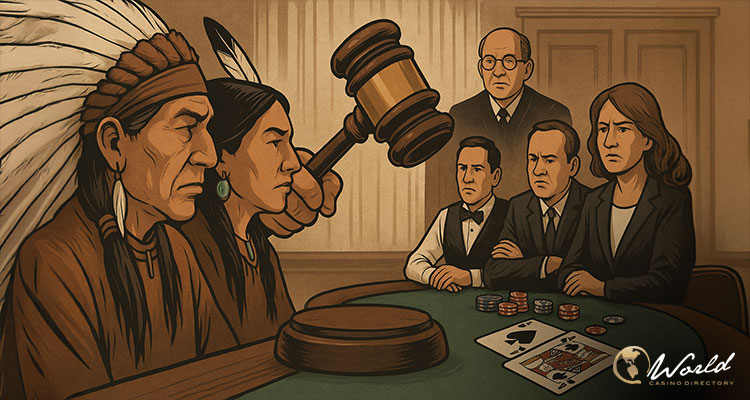California’s long-running conflict between tribal casinos and non-tribal cardrooms has returned to the courtroom, with tribes opposing a Sacramento judge’s tentative decision that would end their lawsuit over banked games. The case stems from allegations that cardrooms have been offering games such as blackjack and baccarat—activities tribes claim they have exclusive rights to—by using third-party proposition players (TPPs) to act as the bank.
Sacramento County Superior Court Judge Lauri Damrell issued a preliminary ruling finding that the federal Indian Gaming Regulatory Act (IGRA) preempts the matter, effectively siding with cardrooms. Tribal representatives argue this interpretation is incorrect, insisting that IGRA governs gaming on tribal lands, not non-tribal venues.
Attorney Adam Lauridsen, representing the tribes, stated that “[The act] has not stretched that far and should not stretch that far,” emphasizing that California’s Senate Bill 549 (SB 549) clearly authorizes tribes to challenge such games in state court.
How SB 549 Changed the Legal Playing Field
Passed in November 2023, SB 549—formally the Tribal Nations Access to Justice Act—opened the door for tribes to sue cardrooms and TPP providers over alleged violations of state gaming laws. Before its passage, sovereign immunity prevented tribes from pursuing such cases.
In January, a coalition of tribes filed suit against more than 90 defendants, including cardrooms and TPPs, under Sacramento Superior Court case number 25CV000001. Complaints from the Rincon Band of Luiseno Mission Indians in April and the Agua Caliente Band of Cahuilla Indians in February claim that the player-dealer setup used by TPPs amounts to illegal house banking.
According to Rincon’s filing, “The TPP defendants maintain and operate a bank by maintaining and occupying the player dealer position in the blackjack-style games offered by the cardroom defendants.” The complaint further argues that the only revenue TPPs have to pay cardrooms comes from winnings in these games, giving cardrooms an unlawful financial interest.
Cardroom Counterarguments and Legal Hurdles
Cardrooms, represented by attorney Ben Horwich, counter that tribes are trying to bypass IGRA’s established framework. “They can’t have it both ways,” Horwich said, suggesting that SB 549 undermines the compact negotiation process between tribes and the state.
Some cardrooms also point to conflicts with Proposition 64, a 2004 measure requiring plaintiffs to demonstrate a direct loss of money or property to sue. Attorneys for Artichoke Joe’s in San Bruno argue that SB 549 illegally amends Prop 64 without voter approval and should be considered void.
Courthouse News, the cardroom side further warns that the tribes’ end goal is “putting a perceived competitor out of business.” Judge Damrell, in her tentative ruling, noted that SB 549 provides remedies that could have been negotiated into tribal-state compacts but were not, reinforcing her view that IGRA’s authority applies.
While the legal battle continues, California’s Bureau of Gambling Control (BGC) has proposed new regulations that closely mirror the lawsuit’s issues. The rules would alter blackjack-style games by removing the “bust” feature, changing target points, and tightening player-dealer rotation requirements. Public hearings in May drew strong cardroom support, but the state acknowledged these changes could cost hundreds of millions in revenue and significantly reduce jobs.
This has wider implications beyond the legal fight. Many small California cities rely heavily on cardroom tax revenue, in some cases making up half their municipal budgets. Tribal casinos also depend on gaming income to support their communities, underscoring the high stakes for both sides as the October 10 hearing approaches.



